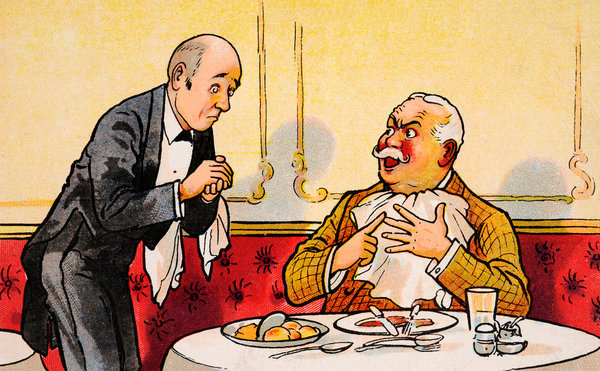The Satisfaction, and Annoyance, of Complaining - NYTimes.com
Tina Miller, MA,CFLE stashed this in success
Stashed in: life, Customers!, Psychology!, Happiness, Marriage, Psychology
She recommended I visit Complaint Free World’s Web site, and then offered me her bracelet.
I took it, both intrigued and repelled by the idea.
Like many people, I have a love-hate relationship with complaining. There is little that is more satisfying than chewing over a meaty complaint about an idiotic service person or the really annoying thing that friend does or how unbelievably rude a teenager can be.
On the other hand, I really dislike people who constantly whine about the same thing. Or those who come to me seemingly wanting advice but then ignore my suggestions and continue grumbling about the same grievance.
So do I want a complaint-free world? Or just one free of the kind of complaints I don’t like?
It depends. Not many people believe we will ever have a world devoid of complaints. Nor should we.
“Psychologically, it’s really unhealthy to squelch complaints,” said Guy Winch, a psychologist and author of “The Squeaky Wheel.” “By not complaining aloud, it doesn’t mean the dissatisfaction has gone away. You’re just not voicing it.”
Some complaints serve as an icebreaker or a bonding experience. Grousing about the weather or traffic is an easy way to start a conversation or simply to avoid standing silently next to each other in an elevator.
“It’s one way to create rapport,” said Joanna Wolfe, a professor of English at Carnegie-Mellon University whose research focuses on communication styles. Complaining about a late bus with other riders, for instance, “creates kind of a solidarity,” she said. “I’ve made friends that way.”
So in my ideal world, I would not do away with those kinds of complaints, although Will Bowen, founder of A Complaint Free World, disagrees.
“A lot of research has been done that shows complaining is damaging to health, relationships and careers,” he said. “When people go 21 days without a complaint, they say they are happier.”
Instead of using a complaint as a conversation opener, he suggested, “talk to them about something good or positive.”
But, he said, his message should not be misunderstood.
He is not arguing that you can’t note when something is wrong. He says you should just do it directly in a neutral manner to the person responsible, not to everyone around you and not with a voice of outrage.
Gottman talks about this when discussing making marriage work, about the importance, and even necessity, of complaining, and of stating it in a neutral tone.











6:32 PM May 29 2013